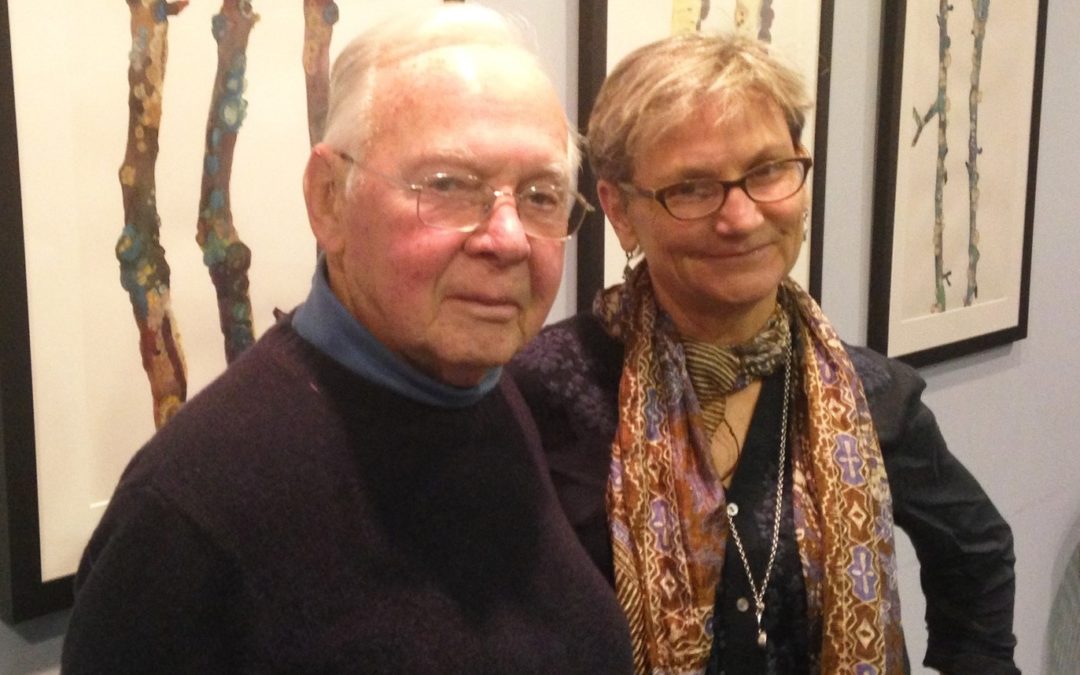It all started in 2008, when Drs. Leslie and Annie De Groot, father and daughter, applied for a joint SBIR. Using their combined knowledge, as world leading endocrinologist and immunologist, they set out to develop a new way to treat Graves’ disease, an autoimmune disorder that results in hyperthyroidism.
Throughout his career, Dr. Leslie De Groot (retired now in 2017) had performed extensive in vitro and in vivo studies researching the thyroid, and he particularly spent years searching for a way to reduce the immune response that affects the thyroid in Graves’ disease. On the other hand, his daughter, Dr. Annie De Groot, as the CEO/CSO of EpiVax was developing in silico immunoinformatics tools, used to produce better vaccines that induce the immune response to protect against various diseases. As time and technology advanced, the two found a way to join forces when EpiVax discovered Tregitopes, or Treg epitopes. They realized that Annie’s newfound technology capable of reducing the immune response, when paired with Leslie’s Graves’ disease expertise, could be used to produce a novel treatment for this autoimmune disease in question (and others, too). This led to the submission of their Graves’ disease SBIR application, which was not accepted.
Years later, Dr. Eduardo Guillén, joined the EpiVax team as the scientific director of protein therapeutics. Unaware of the previous application submitted by the De Groots, he proposed the submission of the same Graves’ disease Tregitope treatment approach as a research grant application in 2017. Annie saw this as an opportunity for the EpiVax team to continue the work she and her father started years ago, and she shared the previous research for the new project submission entitled, “Novel Antigen Specific Immunomodulatory Tregitope-based Therapy To Address Autoimmune Pathogenesis in Graves’ Disease”.
This time around, the Graves’ disease SBIR was awarded to Annie’s team at EpiVax. Support in recent years from the National Institutes of Health (NIH), in the form of an SBIR funding the application of Tregitope treatment to Type 1 Diabetes, likely helped the cause.
The Graves’ disease research is to be led by the Tregitope team at EpiVax, Guillén and Sandra Lelias. In collaboration with Lifespan, they will set out to produce a Tregitope-biotherapeutic, which will reduce the immune response that targets the thyroid stimulating receptor in Graves’ disease, in order to cease the overproduction of thyroid hormones.
For updates on our progress, email info@epivax.com, and ask to join our Graves’ disease newsletter.
For more information on the official “father-daughter” story, please read “Passing the scientific baton, from father to daughter” by Richard Asinof from ConvergenceRI.
For more details on the SBIR grant award, please read the official press release below:
PROVIDENCE, R.I., Dec. 19, 2017 – EpiVax, Inc. (“EpiVax”) today announced their latest development program for novel antigen-specific therapies, an approach which may have applications across a range of autoimmune diseases. The first therapeutic target is Graves’ disease, an autoimmune condition resulting in hyperthyroidism.
Current methods for managing Graves’ disease are associated with adverse effects, often require life-long replacement therapy, and do not address the root cause of hyperthyroidism.
EpiVax’s award will support the development of a novel Tregitope-biotherapeutic (Treg-BT) intended to restore immunological balance in Graves’ disease, an approach that could lead to long-term drug- and surgery-free solutions for more than 300,000 Graves’ disease patients in the US.
Phase I will demonstrate the utility of a Tregitope therapy in the treatment and management of Graves’ disease by reprogramming the autoimmune response to the thyroid receptor. This work builds upon research conducted by renowned endocrinologist Leslie De Groot, and is now carried forward by his daughter Annie De Groot and co-investigators Eduardo Guillen, Ricardo Correa, Geetha Gopalakrishnan, with support from Hidefumi Inaba.
In collaboration with LifeSpan, EpiVax will produce a candidate Treg-BT platform designed to down-regulate thyroid stimulating antibodies.“We believe that this therapeutic approach directly addresses the underlying autoimmune process causing the disease, and could potentially augment or replace current treatments in Graves’ disease”, commented Dr. Gopalakrishnan, Department Head of the Lifespan Endocrine Department. “This type of pathogenesis-modulating therapy will clearly have implications for the treatment of a wide range of other T-cell mediated autoimmune diseases.”
About Tregitope
Tregitopes are a set of peptides first discovered in human immunoglobulin by De Groot and Martin at EpiVax. Similar to the existing autoimmune disease therapy IVIg, Tregitopes are capable of downregulating inflammation by engaging regulatory T cells. www.epivax.com
About LifeSpan
LifeSpan is a large multi-hospital academic medical center that offers the most advanced and highest quality medical care in centers of excellence that include diabetes and endocrinology, cardiology, orthopedics, cancer care, women’s medicine, emergency services among others. https://www.lifespan.org/
Funding Statement
Research reported in this publication was supported by the National Institute of Diabetes And Digestive And Kidney Diseases of the National Institutes of Health under Award Number R43DK115365. The content is solely the responsibility of the authors and does not necessarily represent the official views of the National Institutes of Health.



